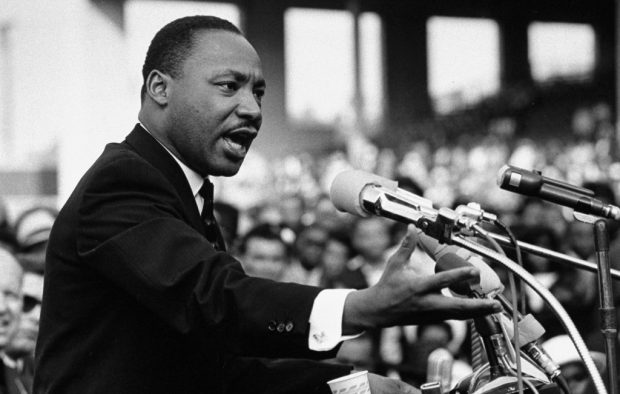Martin Luther King Jr. was an American Christian minister and activist who became the most visible spokesperson and leader in the Civil Rights Movement from 1955 until his assassination in 1968. King is best known for advancing civil rights through nonviolence and civil disobedience, inspired by his Christians beliefs and the nonviolent activism of Mahatma Gandhi.

On October 14, 1964, King won the Nobel Peace Prize for combating racial inequality through nonviolent resistance. In 1965, he helped organize the Selma to Montgomery marches. In his final years, he expanded his focus to include opposition towards poverty and the Vietnam War.
King was the youngest person to be awarded the Nobel Peace Prize in 1964– When Martin Luther King Jr. received a Nobel Peace Prize for combating racial inequality through non-violence, he was just 35 years old to aid in the progress of the civil rights movement.
MLK is the only non-president with a national holiday in his honor – In 1983, President Ronald Reagan signed a bill that would establish a nationally observed holiday in remembrance of King. He is the only non-president to have received such an honor. The holiday was first celebrated in 1986 on the third Monday in January, close to MLK’s birthday on January 15. He is also the only non-president with a memorial located on the National Mall in Washington, DC.
King didn’t just focus on civil rights – In 1966, he began a campaign against poverty and urban inequality. A follower of Gandhi’s non-violent principles, King also objected to the United States’ participation in the Vietnam War. And it was his support of a sanitation workers’ strike that took him to Memphis, Tennessee, where he was assassinated on April 4, 1968.
King was nearly assassinated 10 years before his death – On September 20, 1958, King was in Harlem signing copies of his new book, Stride Toward Freedom, at a local department store, Blumstein’s. A woman named Izola Ware Curry approached him, asking if he was Martin Luther King. When he replied yes, she said, “I’ve been looking for you for five years,” and stuck a letter opener into his chest. The blade came close to penetrating his heart, nestled just along the side of his aorta. After several hours of surgery, King emerged alive; doctors later told him that “just one sneeze could have punctured the aorta” and killed him. King later issued a statement that he felt no anger or ill will towards the woman.
King’s last public speech foreshadowed his death – On the night before his assassination, King traveled to Memphis to give a speech in support of the city’s African American sanitation workers. At Mason Temple Church, he told the crowd, “Like anybody, I would like to live a long life. Longevity has its place. But I’m not concerned about that now… I’ve seen the Promised Land. I may not get there with you. But I want you to know tonight, that we, as a people, will get to the Promised Land. “

